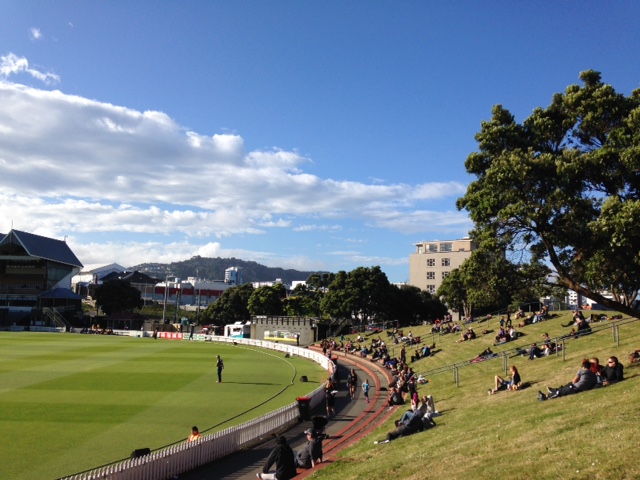
It’s been a quiet first few months of 2016, at least in the public eye, as far as post-Basin Reserve flyover transport planning for central Wellington goes. But a burst of articles, presentation and comments in the media signal that this intermission is almost at an end.
Before this post-Christmas intermission, the previous act finished with the drama of the defeat of the New Zealand Transport Agency’s appeal to the High Court, and the news that the Ngauranga to Airport Governance Group, consisting of representatives from Wellington City Council, Greater Wellington and NZTA, had been given official responsibility for determining what should happen next. In December, representatives of Save the Basin and a number of other groups involved in the High Court action met with the Governance Group. Since then, at least in public, the curtain has been down on developments.
But now the players are taking their positions and the next act is about to begin. We understand that a public engagement process designed by the Governance Group, which we hope has taken into account input from Save the Basin and other community groups, will be launched in April. After Andy Foster had a quick say, Ngauranga to Airport programme manager Jim Bentley made a presentation to Wellington City Council earlier this week.
In its article reporting on this, the Dominion Post repeated two common errors: firstly, it assumed that an expensive piece of infrastructure was needed to “fix” congestion at the Basin, and second, it assumed that congestion in central Wellington’s roads stemmed from the Basin itself.
In Wellington Scoop, Lindsay Shelton succinctly debunks both arguments. The Transport Agency themselves have said that incremental at-grade (ground-level) improvements can be made around the Basin – while we believe a wider engagement process is necessary, we support short-term incremental improvements as well.
There are grounds for hope that NZTA may be moving away from the “bigger is better” approach that has bedevilled their transport planning in the past. A focus on making simple, readily affordable changes around the Basin would be a good start – and you can see what other steps we proposed for the Basin in the aftermath of the High Court decision.